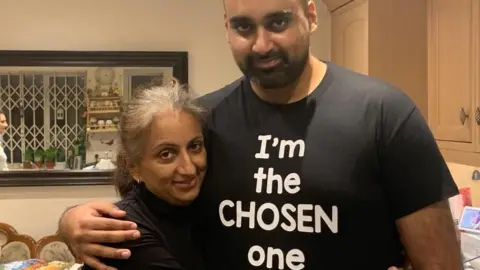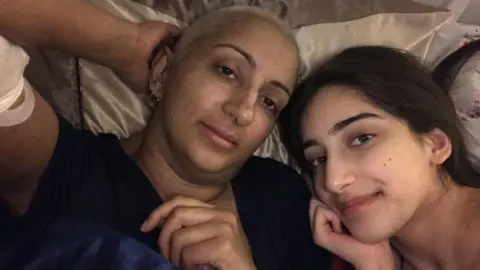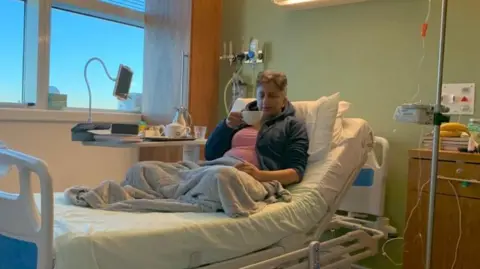'He came out as a match, that felt like a relief'
 Handout
HandoutWhen Kal was diagnosed with a rare form of blood cancer in December 2019, a stem cell transplant was her best hope for treatment.
Her chances of finding a donor on the stem cell register were slim as it is harder for those from an ethnic minority background to find a suitable match.
She found some relatives struggled to even talk about cancer but others underwent testing to see whether they could donate, including her younger brother.
“He came out as a match and that felt like a relief," says Kal, who is from north-west London.
"My two younger sisters went first and they weren't matches. I felt a bit down because I thought they're most similar to me in terms of closer in age.
"Then my brother went and then he came out as a match."
Sim was able to donate stem cells in a process he said was little more intensive than donating blood - a choice that helped save Kal's life.
"This was a very quick decision for me and one that I was happy to make," he said.
"It's not complicated for the person donating, it is just slightly more for the people extracting it.
"And that's it, it's a very easy process. The difference it makes is life-changing."
 Handout
HandoutKal said some family members had seemed uncomfortable talking about her diagnosis and options for treatment.
"When I spoke to relatives about what I was going through, it felt like they didn't want to talk about it. It was like a taboo thing," she said.
"They felt almost nervous talking about it, so you felt nervous putting them in that position.
"They can't even say the cancer word. They call it the C-word. It's like it's contagious if you say it."
Kal has one more year of treatment and will be in remission from next November.
 Handout
HandoutAbout 16,000 people die from blood cancer every year in the UK, making it the third biggest cancer killer, according to Blood Cancer UK.
There are currently 909,000 donors on the stem cell register with leading charity Anthony Nolan.
Of those, 16% are from an ethnic minority background, making it harder for some patients to find donors.
Yasmin Sheikh, head of policy and public affairs at Anthony Nolan, said: "Because genetic diversity in people from an Asian or other minority ethnic background is just so vast, we really need to be recruiting in very high numbers, not just in the UK but across the whole of the world, in order to make that representation and change the odds of an individual patient in terms of finding a match."
Listen to the best of BBC Radio London on Sounds and follow BBC London on Facebook, X and Instagram. Send your story ideas to [email protected]
